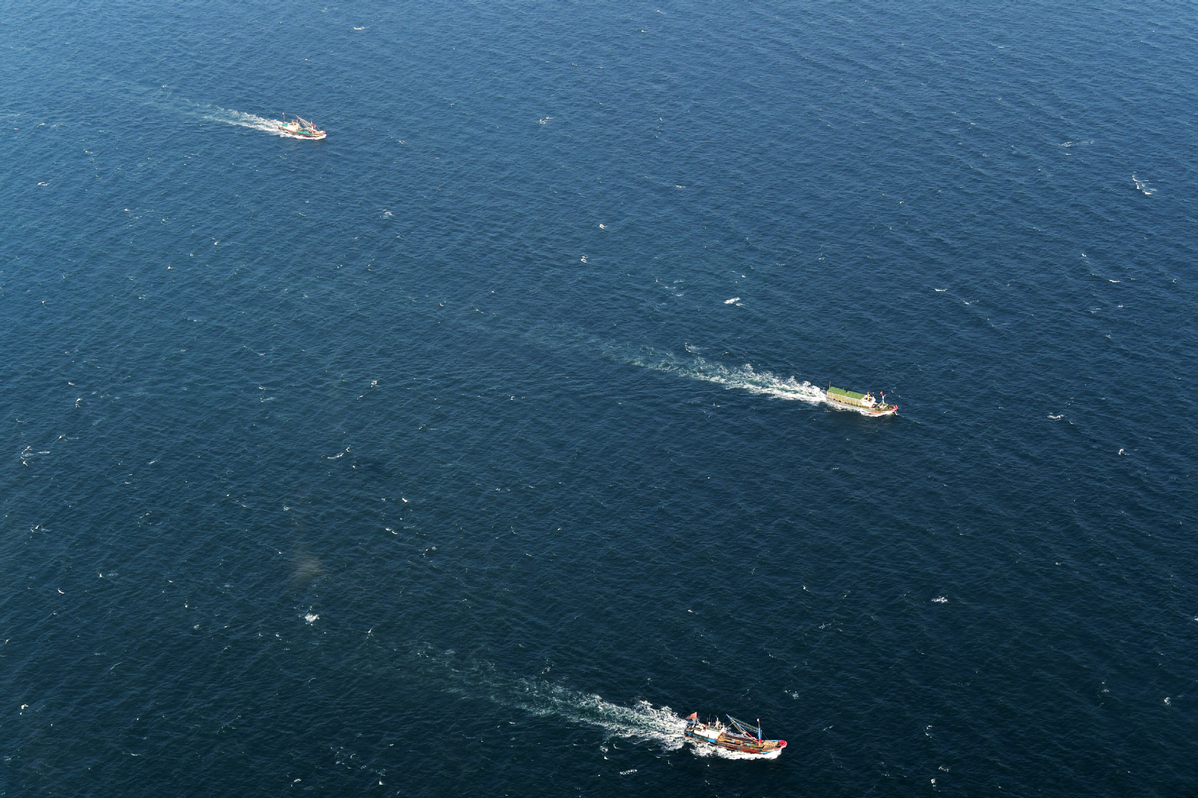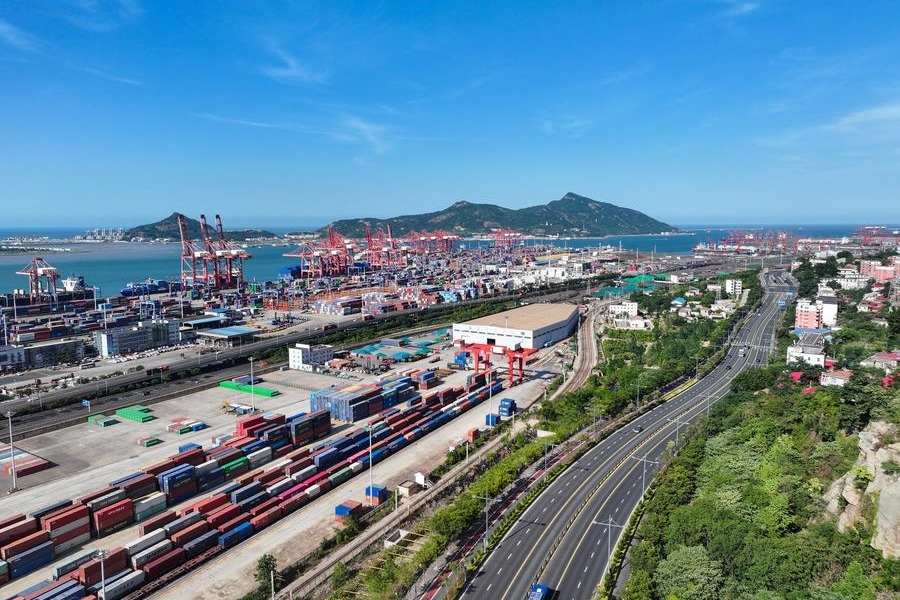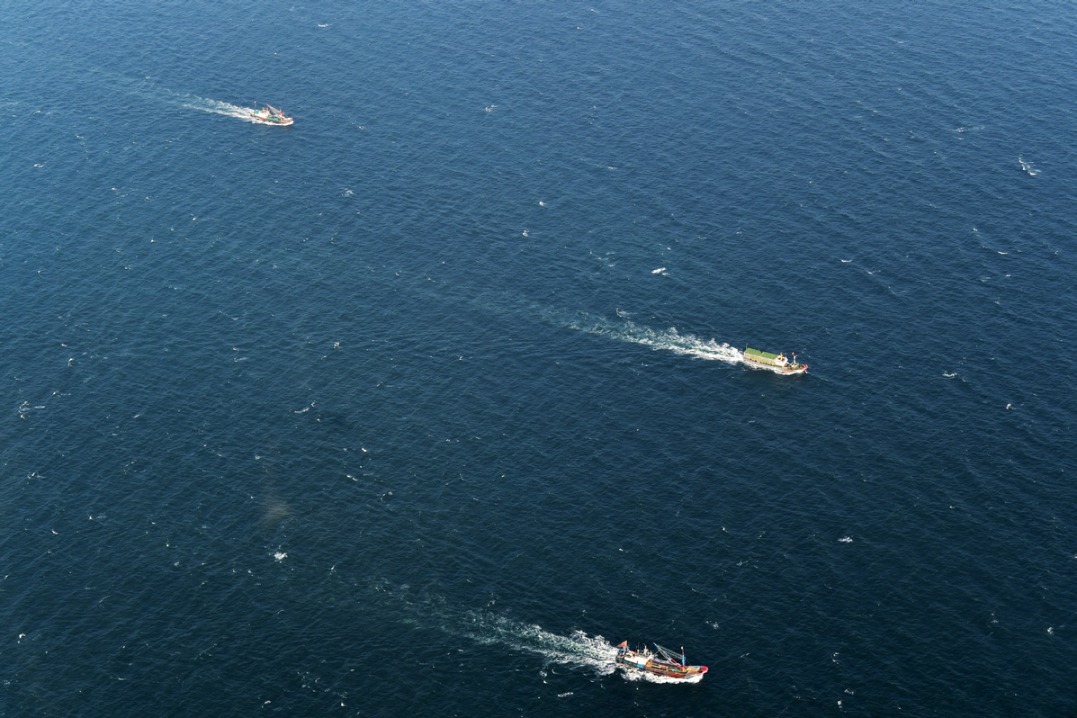Fish tales: The truth behind China's distant-water fishing


For over a decade, some US politicians and institutions have framed China's distant-water fishing as a global threat, twisting a normal, regulated industry into a political weapon. This narrative, driven by strategic competition, paints China as an irresponsible player in ocean governance, ignoring facts to fit a story of rivalry. Recently, this played out again in a US Senate hearing titled "Finding Nemo's Future: Conflicts over Ocean Resources". The hearing became a stage for rehashing old claims, accusing China's fishing fleet of illegal activity, environmental harm, and even posing a security risk. Testimony of the scholar from the Center for Strategic and International Studies (CSIS), went further, suggesting China's fishing boats are a front for geopolitical schemes, tying them to illegal fishing, crime, and threats to global rules. These accusations aren't new, but they're part of a pattern—using fisheries to push a broader agenda of curbing China's growth and keeping US dominance at sea.
This article digs into these criticisms, pulling from the Senate hearing and related discussions, and lays out a clear, fact-based response. China's distant-water fishing isn't the reckless, shadowy operation it's made out to be. It's a tightly regulated industry focused on sustainability and global cooperation. The evidence shows China's efforts to manage its fleet responsibly, countering the US' claims with hard data and real practices. What's clear is that this isn't about fishing—it's about politics, and the US is using the issue to score points in a bigger game.
The Senate hearing zeroed in on a few big accusations against China's fishing fleet. First, they called it the main culprit in illegal, unreported and unregulated (IUU) fishing worldwide, claiming Chinese boats routinely break rules and overfish. Second, they tied it to transnational crime, hinting that Chinese vessels are part of smuggling or trafficking networks, even though the examples they used often pointed to other countries. Third, they said China's fishing hurts small, vulnerable economies, like Pacific Island nations, by taking their fish and leaving them poorer. Fourth, they accused China of breaking international rules, using tricks like unreported transshipment to dodge oversight and weaken fisheries governance. Finally, they suggested that China's fishing boats are more than just boats—that they're tools for spying or supporting military goals, part of a plan to challenge US power at sea.
These claims may sound serious, but they don't hold up when you look at the facts. Let's start with the illegal fishing charge. China doesn't let its fleet run wild. Since 2006, it's had a vessel monitoring system (VMS) tracking every distant-water boat. These ships report their position every hour—more often than international rules require. By 2021, China stepped it up with a daily reporting system, keeping tabs on every vessel 24 hours a day. This isn't a fleet sneaking around; it's one under constant watch. On transshipment—the practice of moving catch to bigger ships at sea—China's been ahead of the game. Since 2020, it's had a system requiring all transshipments to be approved beforehand and reported after, with every transport ship tracked. The hearing's claim that China uses "motherships" to hide illegal fishing is flat-out wrong. The data's there, and it's transparent—if the US bothered to check.
Then there's the crime angle. The hearing tried to link China's fleet to shady networks, but the evidence they leaned on wasn't even about China. It's a cheap tactic—guilt by association. China's been tough on fisheries crime, working with relevant international organizations and slapping heavy penalties on violators. Inspections happen at sea and the port, and the rules are strict. Painting the whole industry as a criminal front ignores the reality: China's cracking down, not covering up.
What about the economic harm to small nations? The hearing said China's fleet is robbing Pacific Island countries, overfishing their waters and tanking their economies. But that's not the full picture. China's deals with these nations aren't about plunder—they're about partnership. Through agreements, China builds processing plants and cold storage, creating jobs and boosting local industries. Fishing licenses come with catch limits set by the host countries, and the money from those licenses helps their budgets. Far from squeezing anyone out, China's helping these places grow. The idea that it's causing food crises or decrease in income doesn't match the facts on the ground.
The rule-breaker label doesn't stick either. China's not dodging international fisheries governance—it's part of it. It joined regional fisheries management organizations (RFMOs) and follows their rules, like catch limits and recovery plans. Where there's no RFMO, China's stepped up anyway. Take its voluntary fishing moratoriums: since 2020, it's shut down squid fishing in parts of the Southwest Atlantic and Southeast Pacific to let stocks recover. Data shows it's working—fish numbers are bouncing back. In 2022, China added the northern Indian Ocean to its moratorium list, stopping its boats during key months. This isn't a country exploiting gaps; it's one filling them with action.
The wildest claim is that China's fishing fleet is a geopolitical weapon. The hearing hinted these boats are out there gathering intel or backing military moves, but there's no proof—just guesses. China's fleet is about fish, not power plays. It's an economic lifeline, feeding millions and keeping an industry alive. The US talks about maritime security and spotting "bad actors," but it's throwing around theories, not evidence. China's shown it's ready to work with others to keep fisheries safe and sustainable—hardly the mark of a shadowy threat.
Beyond debunking these attacks, China has a solid track record to stand on. Since starting distant-water fishing in 1985, it's built an industry that's about responsibility, not recklessness. Those moratoriums aren't just talk—they're real steps to protect fish stocks, going beyond what's required. China's also poured money into tech, like better nets to cut bycatch and greener boats to lower emissions. It's inked deals with other countries, sharing know-how and building up fisheries together. And when rules are broken, China doesn't mess around—fines, license yanks, even jail time keep the fleet in line. This isn't the chaos the US describes; it's a system that works.
The US narrative isn't really about fishing—it's about fear. Strategic anxiety drives this push to paint China as a villain, using fisheries as a pawn in a bigger fight. For years, it's tried to hold onto its grip on ocean rules, and China's rise makes it nervous. The Senate hearing wasn't about finding truth; it was about building a story to rally against China. But stories don't change facts. China's distant-water fishing is regulated, sustainable and cooperative—everything the accusations say it isn't.
The world's got bigger problems than this blame game. Fish stocks are under pressure, and oceans need protecting. That takes countries working together, not pointing fingers. China's shown that it's up for that, with data and actions to back it up. The US could join in, focusing on real fixes instead of stirring up rivalries. Twisting fisheries into a political fight helps no one—not the fish, not the people who rely on them. It's time to cut the noise and get to work on what matters: keeping the seas alive for the future.
Ding Duo, director of the Center for International and Regional Studies, National Institute for South China Sea Studies.
The views don't necessarily reflect those of China Daily.
If you have a specific expertise, or would like to share your thought about our stories, then send us your writings at opinion@chinadaily.com.cn, and comment@chinadaily.com.cn.































